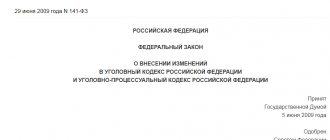1. The time periods provided for by this Code are calculated in hours, days, months. When calculating periods in months, the hour and day at which the period begins is not taken into account, except for the cases provided for by this Code. When calculating the terms of detention, house arrest and stay in a medical organization providing medical care in an inpatient setting, or in a medical organization providing psychiatric care in an inpatient setting, they also include non-working time.
2. The period, calculated in days, expires at 24 hours of the last day. A period calculated in months expires on the corresponding date of the last month, and if this month does not have a corresponding date, then the period ends on the last day of that month. If the end of the period falls on a non-working day, then the last day of the term is considered to be the first working day following it, with the exception of cases of calculating time limits for arrest, detention, house arrest and stay in a medical organization providing medical care in a hospital setting, or in a medical facility. organizations providing psychiatric care in inpatient settings.
3. In case of detention, the period is calculated from the moment of actual detention.
The concept of procedural time. Rules for calculating procedural time limits
Procedural deadlines in criminal proceedings are the time established by law for performing procedural actions, making procedural decisions, starting and completing proceedings at a specific stage of legal proceedings. The establishment of procedural deadlines is aimed at ensuring timely protection of the rights and legitimate interests of participants in legal proceedings, rapid and effective investigation, consideration and resolution of criminal cases.
International standards establish the right of everyone, when determining his civil rights and obligations or when considering a criminal charge, to a fair public hearing within a reasonable time by an independent and impartial court established by law (clause 1 of Article 6 of the ECHR), as well as to carry out legal proceedings on criminal and civil cases without undue delay (clause 3 of article 14 of the International Covenant). It is no coincidence that in 2010 Ch. 2 of the Code of Criminal Procedure was supplemented with the new principle of “reasonable time for criminal proceedings” (Article 61).
The need to comply with procedural deadlines has been repeatedly pointed out by the Plenum of the Supreme Court of the Russian Federation: failure to comply with the deadlines for consideration of criminal cases violates the constitutional right of citizens to judicial protection, guaranteed by Art. 46 of the Constitution of the Russian Federation.
The basic rules for calculating, observing, extending and restoring procedural deadlines in criminal proceedings are enshrined in Art. 128-130 Code of Criminal Procedure. Time frames are calculated in hours, days, months. When calculating periods in months, the hour and day at which the period begins are not taken into account. When calculating the periods of detention, detention, house arrest and stay in a medical or psychiatric hospital, non-working time is also included.
The period, calculated in days, expires at 24 hours of the last day. A period calculated in months expires on the corresponding date of the last month, and if this month does not have a corresponding date, then the period ends on the last day of that month. If the end of the period falls on a non-working day, then the last day of the term is considered to be the first working day following it, with the exception of cases of calculating time periods during arrest, detention, house arrest and stay in a medical or psychiatric hospital.
Thus, in the case of S., the question of compliance with the requirements of Art. 312 of the Code of Criminal Procedure on the delivery of a copy of the verdict to the convicted or acquitted person, his defense attorney and prosecutor within five days from the date of proclamation of the verdict.
As can be seen from the minutes of the court session, the verdict in this case was announced on May 31, 2004. The Deputy Chairman of the court, according to the covering letter available in the case, sent a copy of the verdict on June 2, 2004 to the prosecutor's office, where it was received on June 7, 2004.
According to Part 2 of Art. 128 of the Code of Criminal Procedure of the Russian Federation, if the end of a period calculated in days falls on a non-working day, the last day of the period is considered to be the first working day following it. The fifth day for delivery of a copy of the verdict fell on Saturday, June 5, 2004, i.e., a non-working day, and therefore the last day for delivery of a copy of the verdict to the public prosecutor expired on Monday, June 7, 2004, when it was actually received by the regional prosecutor's office.
The law establishes deadlines for carrying out investigative, judicial and other procedural actions. Thus, the period for conducting a preliminary investigation is two months (Part 1 of Article 162 of the Code of Criminal Procedure), inquiry - 30 days (Part 3 of Article 223 of the Code of Criminal Procedure), urgent investigative actions - 10 days (Part 3 of Article 157 of the Code of Criminal Procedure). Monitoring and recording of telephone and other conversations can be carried out for no more than six months (Part 5 of Article 186 of the Code of Criminal Procedure).
The interrogation cannot last continuously for more than four hours. The continuation of the interrogation is allowed after a break of at least one hour for rest and eating, and the total duration of the interrogation during the day should not exceed eight hours (Parts 2 and 3 of Article 187 of the Code of Criminal Procedure). The interrogation of a minor suspect or accused cannot last more than two hours without a break, and in total more than four hours a day (Part 1 of Article 425 of the Code of Criminal Procedure).
When choosing a preventive measure against a suspect, as a general rule, charges must be brought against him no later than 10 days from the moment the preventive measure was applied, and if the suspect was detained and then taken into custody - within the same period from the moment of detention (Part 1 of Art. 100 Code of Criminal Procedure).
The charge must be brought against the person no later than three days from the date of the decision to charge him as an accused (Part 1 of Article 172 of the Code of Criminal Procedure).
The consideration of a criminal case in a court session must begin no later than 14 days from the day the judge made a decision to schedule a court session, and in criminal cases considered by a court with the participation of jurors - no later than 30 days (Part 1 of Article 233 of the Code of Criminal Procedure) .
The parties are notified of the place, date and time of the court hearing at least five days before its start (Part 4 of Article 231 of the Code of Criminal Procedure).
The protocol must be prepared and signed by the presiding officer and the secretary of the court session within three days from the date of the end of the court session (Part 6 of Article 259 of the Code of Criminal Procedure). The parties have the right to submit comments on the protocol of the court session within three days from the date of familiarization with the protocol (Part 1 of Article 260 of the Code of Criminal Procedure).
Within five days from the date of proclamation of the verdict, copies of it are handed over to the convicted or acquitted person, his defense lawyer and the prosecutor (Article 312 of the Code of Criminal Procedure).
The sentence is subject to execution within three days from the date of its entry into legal force (Part 4 of Article 390 of the Code of Criminal Procedure).
The law also determines the deadlines for making procedural decisions.
Thus, a decision on a received message about a committed or impending crime must be made no later than three days from the date of receipt of the specified message (Part 1 of Article 144 of the Code of Criminal Procedure).
A petition submitted during the preliminary investigation is subject to immediate consideration and resolution, and in cases where this is impossible, no later than three days from the date of its application (Article 121 of the Code of Criminal Procedure).
The prosecutor, the head of the investigative body, considers complaints received from participants in criminal proceedings within three, and in exceptional cases - 10 days from the date of their receipt (Part 1 of Article 124 of the Code of Criminal Procedure).
The prosecutor makes a decision on a case received with an indictment within 10 days (Part 1 of Article 221 of the Code of Criminal Procedure) and a case received with an indictment - within two days (Part 1 of Article 226 of the Code of Criminal Procedure).
The judge checks the legality and validity of the actions (inaction) and decisions of the inquirer, investigator, prosecutor no later than five days from the date of receipt of the complaint (Part 3 of Article 125 of the Code of Criminal Procedure); considers a request for an investigative action no later than 24 hours from the receipt of the said request (Part 2 of Article 165 of the Code of Criminal Procedure); considers the issue of imposing a monetary penalty on a person who committed a corresponding violation during pre-trial proceedings, within five days from the date of receipt of the protocol on the violation (Part 3 of Article 118 of the Code of Criminal Procedure).
If the jurors, when discussing the issues put to them within three hours, failed to reach unanimity, then the decision is made by voting (Part 1 of Article 343 of the Code of Criminal Procedure).
The establishment of deadlines for the application of procedural coercive measures is important for ensuring the rights of participants in legal proceedings. Thus, until a court decision, a person cannot be detained on suspicion of committing a crime for a period of more than 48 hours from the moment of actual detention (Part 2 of Article 22 of the Constitution of the Russian Federation, Section 11 of Article 5, Part 1 of Article 10, Part 3 Article 94, Part 3 Article 128 Code of Criminal Procedure). Limit periods for detention have been established both in pre-trial proceedings and during the consideration of the case in court (Articles 109, 255 of the Code of Criminal Procedure).
In some cases, the law establishes rules on the immediate (immediate) performance of procedural actions and decision-making. One of his relatives is immediately notified of the place of detention of the suspect or accused or of a change in the place of detention (Part 12 of Article 108 of the Code of Criminal Procedure). Their legal representatives are immediately notified of the arrest, detention or extension of the period of detention of a minor suspect or accused (Part 3 of Article 423 of the Code of Criminal Procedure). A person who has an obligation to appear must immediately report a change of residence (Part 2 of Article 112 of the Code of Criminal Procedure). The applicant must be immediately notified of the decision made on his complaint by the prosecutor (Part 3 of Article 124 of the Code of Criminal Procedure).
A copy of the decision of the investigator or inquiry officer to initiate a criminal case is immediately sent to the prosecutor.
The judge immediately considers comments on the protocol of the court session (Part 2 of Article 260 of the Code of Criminal Procedure).
In many cases, the law does not establish time limits. Thus, the review of a conviction due to new or newly discovered circumstances in favor of the convicted person is not limited by any time limit (Part 1 of Article 414 of the Code of Criminal Procedure).
The law defines the time limits for parties and other participants in legal proceedings to submit petitions, complaints and submissions. Thus, a judge’s decision to choose detention as a preventive measure or to refuse it can be appealed to a higher court within three days from the date of its issuance (Part 11 of Article 108 of the Code of Criminal Procedure). A request for a preliminary hearing may be submitted by a party after familiarization with the materials of the criminal case or after sending the criminal case to the court within three days from the date the accused receives a copy of the indictment or indictment (Part 3 of Article 229 of the Code of Criminal Procedure). A complaint and submission against a sentence, ruling or ruling of the court may be filed by the parties on appeal within 10 days from the date of proclamation of the appealed decision, and by a convicted person in custody - within the same period from the date of delivery of a copy of the sentence, ruling, ruling. (Part 1 of Article 389.4 of the Code of Criminal Procedure).
The duty of the court, prosecutor, investigator, interrogator to explain to the suspect, accused, victim, and other participants in criminal proceedings the rules on procedural deadlines and to provide them with the opportunity to timely exercise their rights follows from the principle of protecting the rights and freedoms of man and citizen (Article 11 of the Code of Criminal Procedure). In a number of cases, the law directly obliges participants in criminal proceedings to explain the rules on procedural deadlines. Thus, an explanation of the deadlines for appealing a sentence must be contained in the operative part of the sentence (Part 3 of Article 309 of the Code of Criminal Procedure).
Missing a deadline without valid reasons entails leaving the petition, complaint or presentation without consideration. For example, such a rule is specifically established for complaints and submissions against the decision of the court of first instance, filed after the deadline (Part 3 of Article 389.4 of the Code of Criminal Procedure). The deadline is not considered missed if the complaint, petition or other document is submitted by post before the expiration of the deadline, handed over to the person authorized to receive it, and for persons in custody or in a medical or psychiatric hospital - if the complaint or other document is before the expiration term handed over to the administration of the place of pre-trial detention or a medical or psychiatric hospital.
In cases and in the manner prescribed by law, the period may be extended. Thus, the period for making a decision on a received message about a committed or impending crime can be extended to 10 days, and if it is necessary to conduct documentary checks or audits - up to 30 days (Part 3 of Article 144 of the Code of Criminal Procedure). The court, including during pre-trial proceedings, has the authority to make decisions on extending the period of detention (Clause 2, Part 2, Article 29, Parts 2-4, Article 109, Part 3, Article 255 of the Code of Criminal Procedure). Under certain conditions, the terms of the preliminary investigation (parts 4-6 of Article 162 of the Code of Criminal Procedure) and the inquiry (parts 4 and 5 of Article 223 of the Code of Criminal Procedure) can be extended.
A deadline missed for a valid reason must be restored on the basis of a decision of the inquirer, investigator or judge in charge of the criminal case. For example, the missed deadline for appealing court decisions that have not entered into legal force through appeal or cassation procedures can be restored. Refusal to restore the deadline may be appealed.
At the request of an interested person, the execution of a decision complained of missing the deadline may be suspended until the issue of restoring the missed deadline is resolved.
Article 129 of the Code of Criminal Procedure of the Russian Federation. Compliance and extension of deadline
- The deadline is not considered missed if the complaint, petition or other document is submitted by post before the deadline expires, handed over to the person authorized to receive it, and for persons in custody or in a medical or psychiatric hospital, if the complaint or other document is submitted before the deadline expires administration of the place of pre-trial detention or medical or psychiatric hospital.
- The period may be extended only in cases and in the manner established by this Code.
Article 130 of the Code of Criminal Procedure of the Russian Federation. Restoring a missed deadline
- A deadline missed for a valid reason must be restored on the basis of a decision of the inquirer, investigator or judge in charge of the criminal case. Refusal to restore the term may be appealed in the manner established by this Code.
- At the request of an interested person, the execution of a decision appealed with a missed deadline may be suspended until the issue of restoring the missed deadline is resolved.







